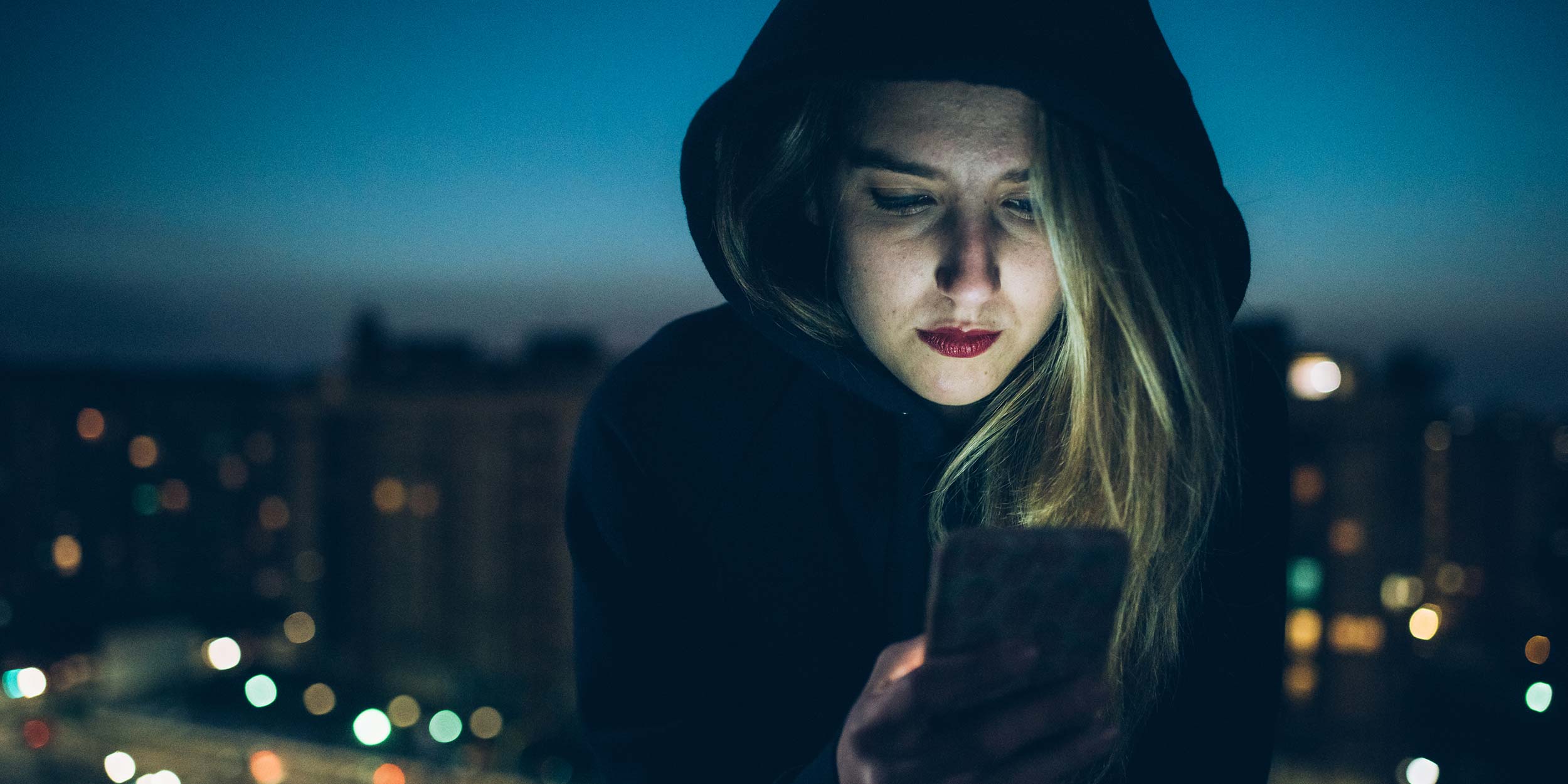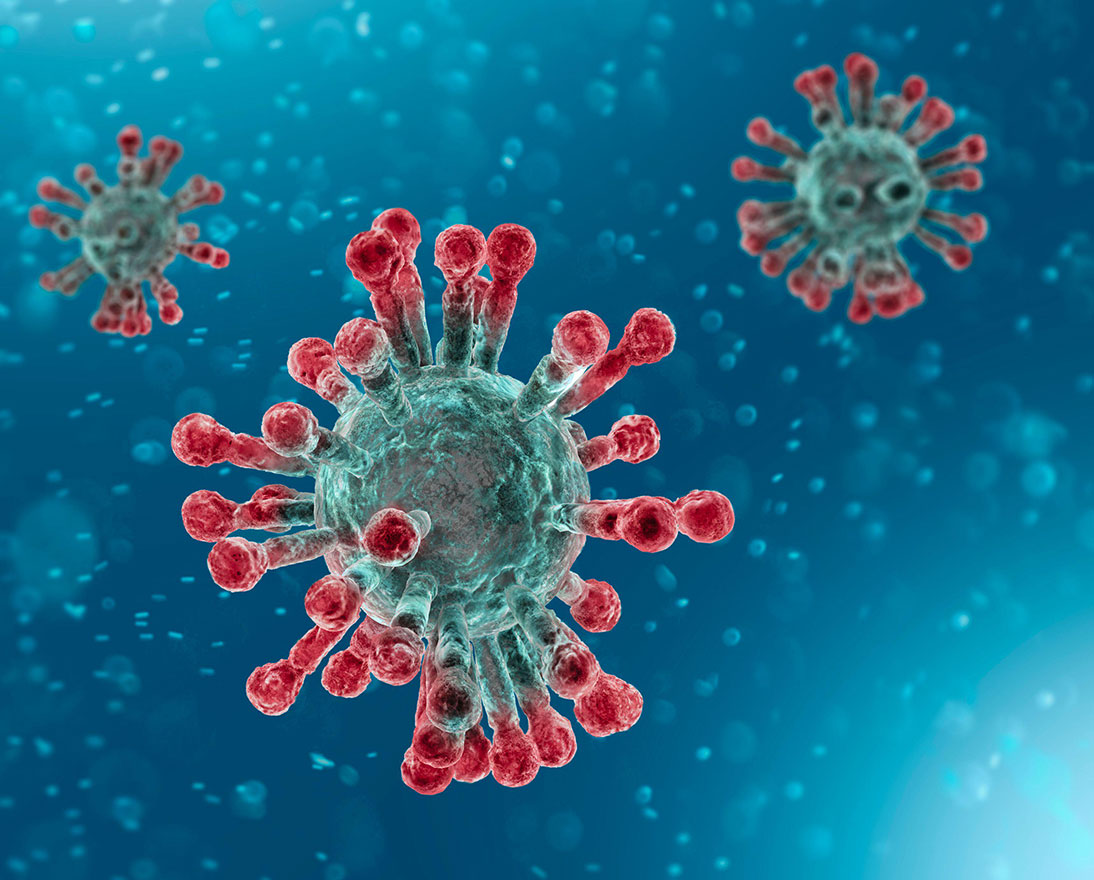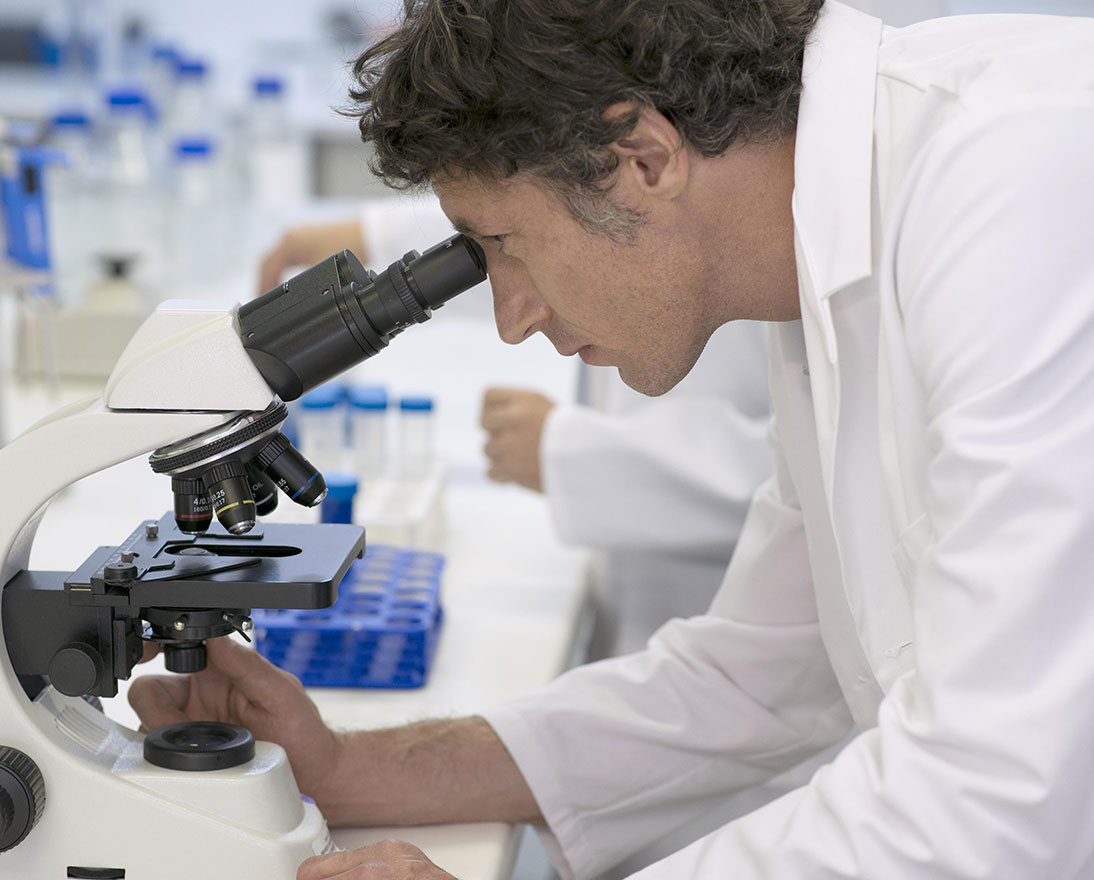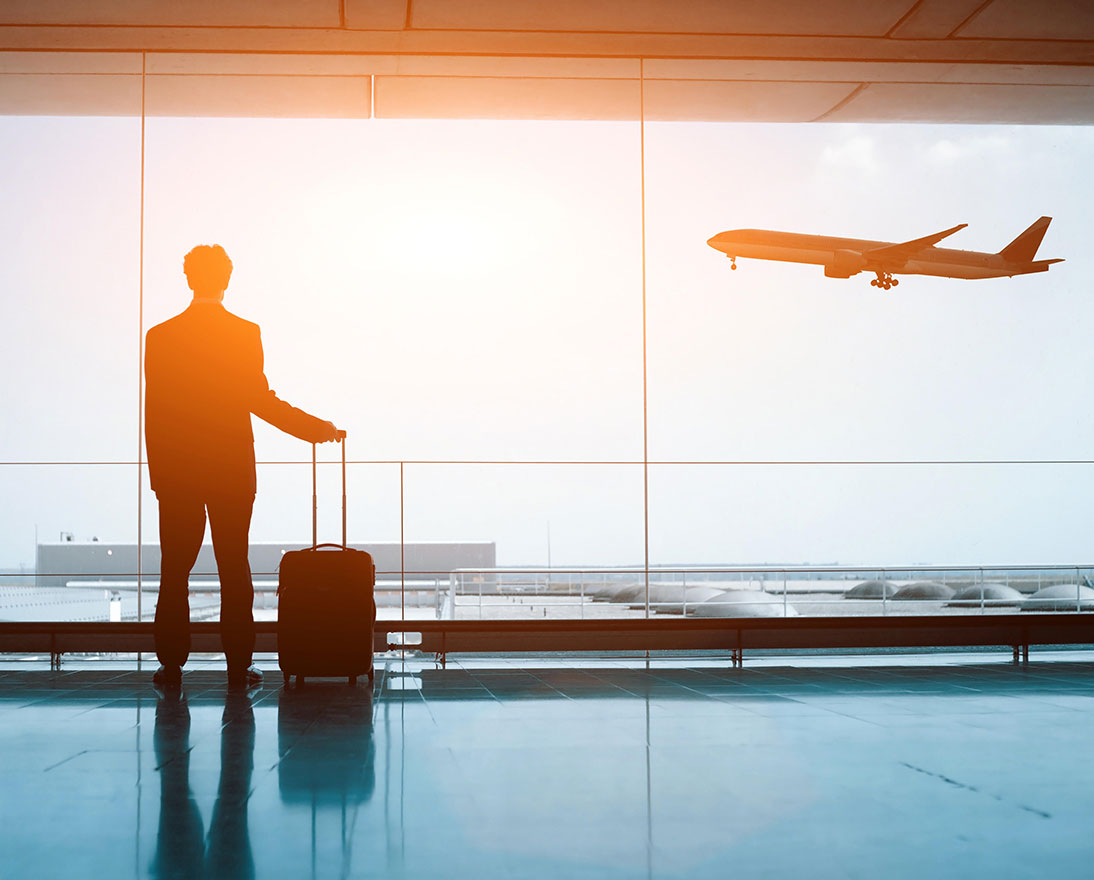The Human Consequences of COVID 19’s Interconnected Risks
Global risksArticleMarch 24, 2020
A 360 degrees look at the human costs of the pandemic beyond the tragic loss of friends and family: fear, anxiety, stress, anger and others.
“The costliest thing to do, is to do nothing”Tedros Ghebreyesus, WHO Director-General
COVID-19 is in decline in China, but there are now more new cases every day in Europe than there were in China at the peak of the epidemic. Italy has surpassed China as the country with most deaths from COVID-19.1 The number of confirmed cases worldwide has exceeded 300,000. It took 67 days to reach the first 100,000 confirmed cases, 11 days to reach 200,0002, and only 4 days to reach 300,000.
Health measures must be the first priority for governments, business and society. It is important for business to show solidarity and work together to protect staff, local communities and customers, as well as keeping supply chains, manufacturing and logistics working. At the same time there is economic disruption to society, business and government, but the best way to help weather the economic crisis is to continue to protect public health and jobs. In countries where the virus has not yet reached, or the number of infections is low, preparedness is the key.
Social distancing alone is not enough and all countries must take a comprehensive approach to break the chains of transmission. That means testing every suspected case. Coordination is critical, as is workplace guidance for both employees and customers.
The human consequences
Over the past few weeks, we have seen significant economic impacts of the coronavirus on financial markets as well as in vulnerable industries such as manufacturing and service businesses such as tourism, hospitality and travel. The global tourism and travel industries are at the front line of the economic impacts of the COVID-19 pandemic. Travel and tourism account for 10% of the global GDP and 50 million jobs are at risk world-wide.3 There is a domino effect as global tourism, travel and hospitality companies close down economic activities, impacting SMEs globally. This in turn affects many people, typically the least well-paid and those who are self-employed or working in informal environments in the gig economy or in part-time work with zero-hours contracts. Some governments have announced economic measures to safeguard jobs, guarantee wages and support the self-employed, but there is lack of clarity in many countries about how these measures will be implemented and how people will manage loss of income in the short term.
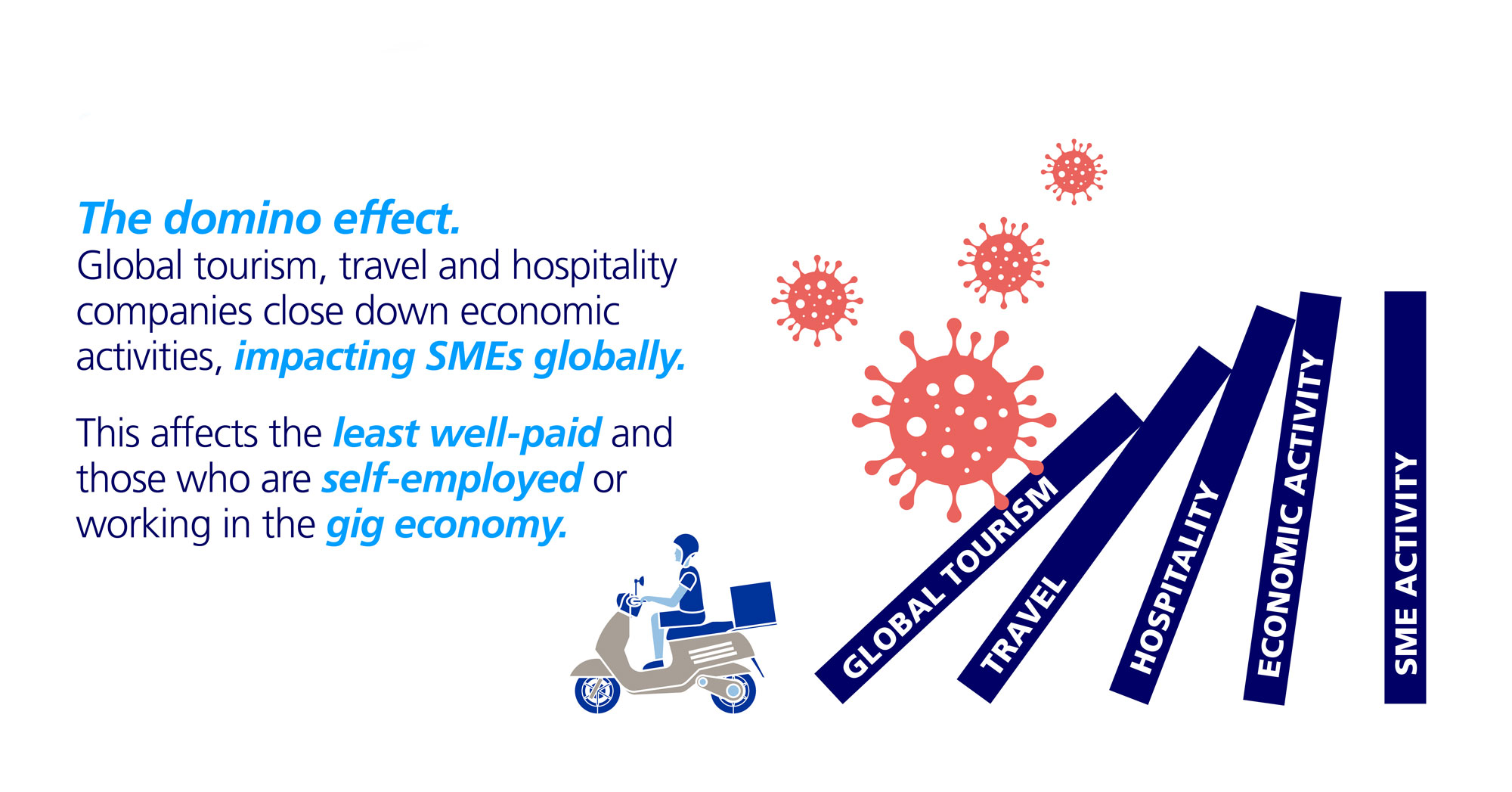
Behind these statistics are the human costs of the pandemic, not only from the deaths of friends and family, but the physical effects on those infected and the mental trauma and the fear, which almost everyone faces. The fear that comes from not knowing how this pandemic is going to play out, in terms of the effects on our economic, physical and mental well-being. This is against a backdrop that for many people is an increasingly anxious, unhappy and lonely world. Anger is increasing and empathy appears to be in decline.4
Fear of the unknown can often lead to feelings of panic, for example when people feel they are being denied life-saving protection or treatment or that they may run out of necessities, which can lead to panic buying. A common theme is that psychological stress is related to a feeling of lack of control in the face of uncertainty.5 In all cases, lack of information or the wrong information, either provided inadvertently or maliciously, can amplify the effects, especially through social media. There is a huge amount of misleading information circulating online about COVID-19 from fake medical information to speculation about government responses. People are susceptible to social media posts from an apparently trustworthy source, often referred to as an “Uncle with a Masters” post, which may be amplified and spread by “Copypasta” posts, which share information by copying and pasting, making each new post look like an original source, as opposed to posts that are “liked” or “shared” or “retweeted.” The blend of half-truths and nonsense in these posts are hard for social media firms to filter out, but they confuse people, are pernicious and easily spread.6
Sadly, this situation is also being exploited by criminals and hackers and there has been a significant rise in Coronavirus-themed malicious websites, with more than 16,000 new coronavirus-related domains registered since January 2020. Hackers are selling malware and hacking tools through "COVID-19" discount codes on the dark net, many of which are aimed at accessing corporate data from home-workers’ laptops that might not have the same security as in an office environment.7
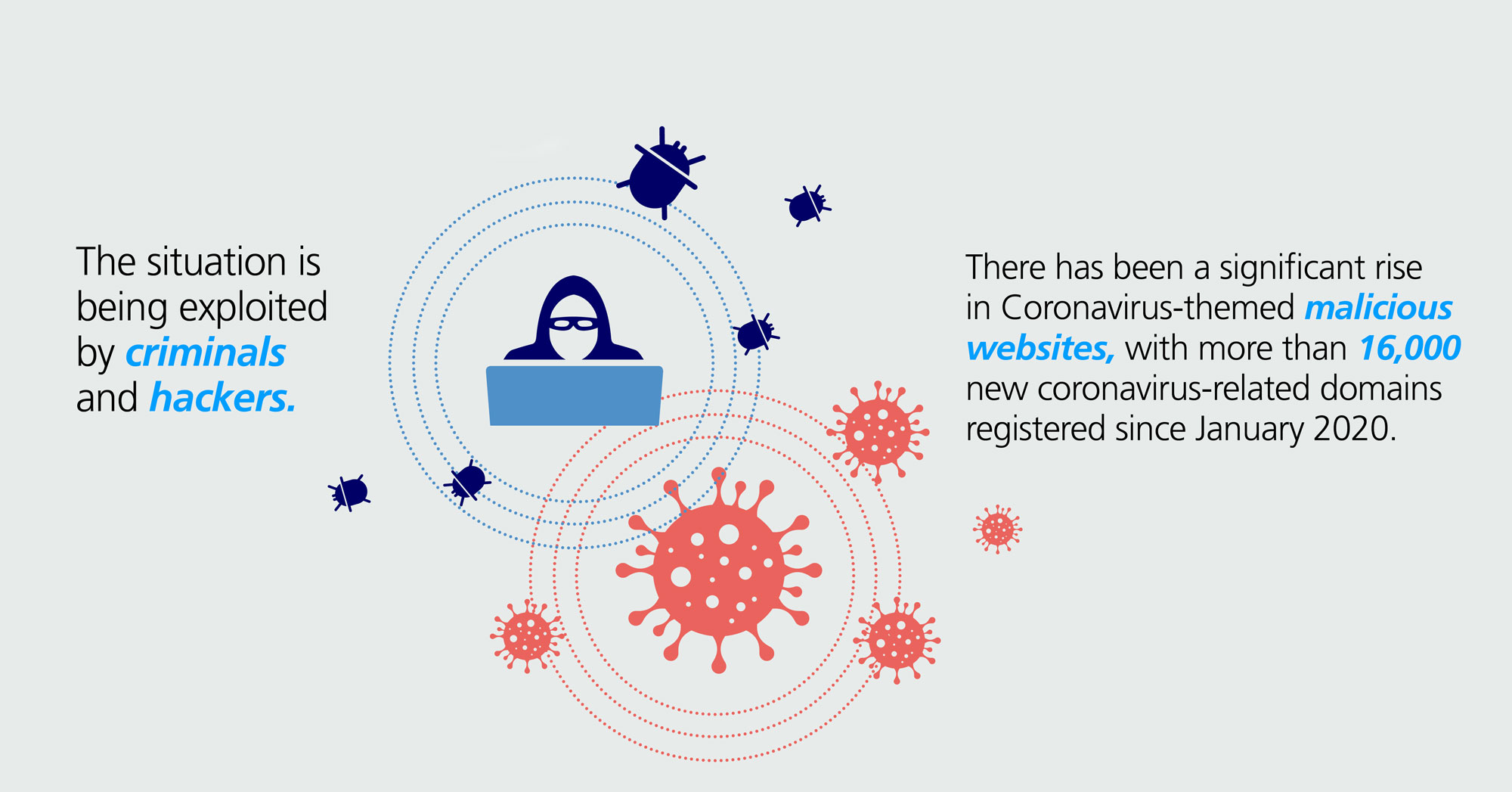
Fortunately, social distancing and complete lock-down of societies seem to also prompt altruistic behaviors, in part because of a sense of “all of us being in this together.” There are have been unexpected consequences, with many people reporting being bored and some concerned with putting on weight because they feel they have nothing to do but stay at home and eat. Some people have discovered a slower pace of life and by not going out and socializing have found more time for families, each other and even their pets.8
The downside of self-isolation or lockdown of societies is people showing symptoms of traumatic stress, confusion and anger. All of which are exacerbated by fear of infection, having limited access to supplies of necessities, inadequate information or the experience of economic loss or stigma. The stress and anxiety can lead to increased alcohol consumption, as well as an increase in domestic and family violence. In Jingzhou, a town near Wuhan in Hubei province, reports of domestic violence during the lockdown in February 2020 were more than triple the number reported in February 2019.9
Social distancing and the closure of schools and many childcare providers to combat the spread of coronavirus create additional pressures on working parents, especially as traditional sources of childcare are typically grandparents, who – to large extent - may be in the most vulnerable groups.10 It is easier to respond positively when there are public appeals to protect the elderly or vulnerable in society, rather than by coercive state action.
Key actions from the business community:
Against this backdrop of the human impacts, what is it that business and employers can do? First of all it is important for companies to be the most trusted and credible sources of information. According to research, it is “my employer” that is more trusted than either government or media.11 Daily updates on a company website with input from scientists and experts is recommended to counter politicized messages in the media and from governments. This is particularly true for large companies that usually have the capacity to do so.
Getting across key messages about what businesses are doing for their employees and in their communities is also important. Some companies are filling the void left when schoolchildren from vulnerable families can no longer get a school meal, or providing public health messages about effective hand-washing. Even CEOs can show that they are working from home and self-isolating, while still being effective in their leadership.
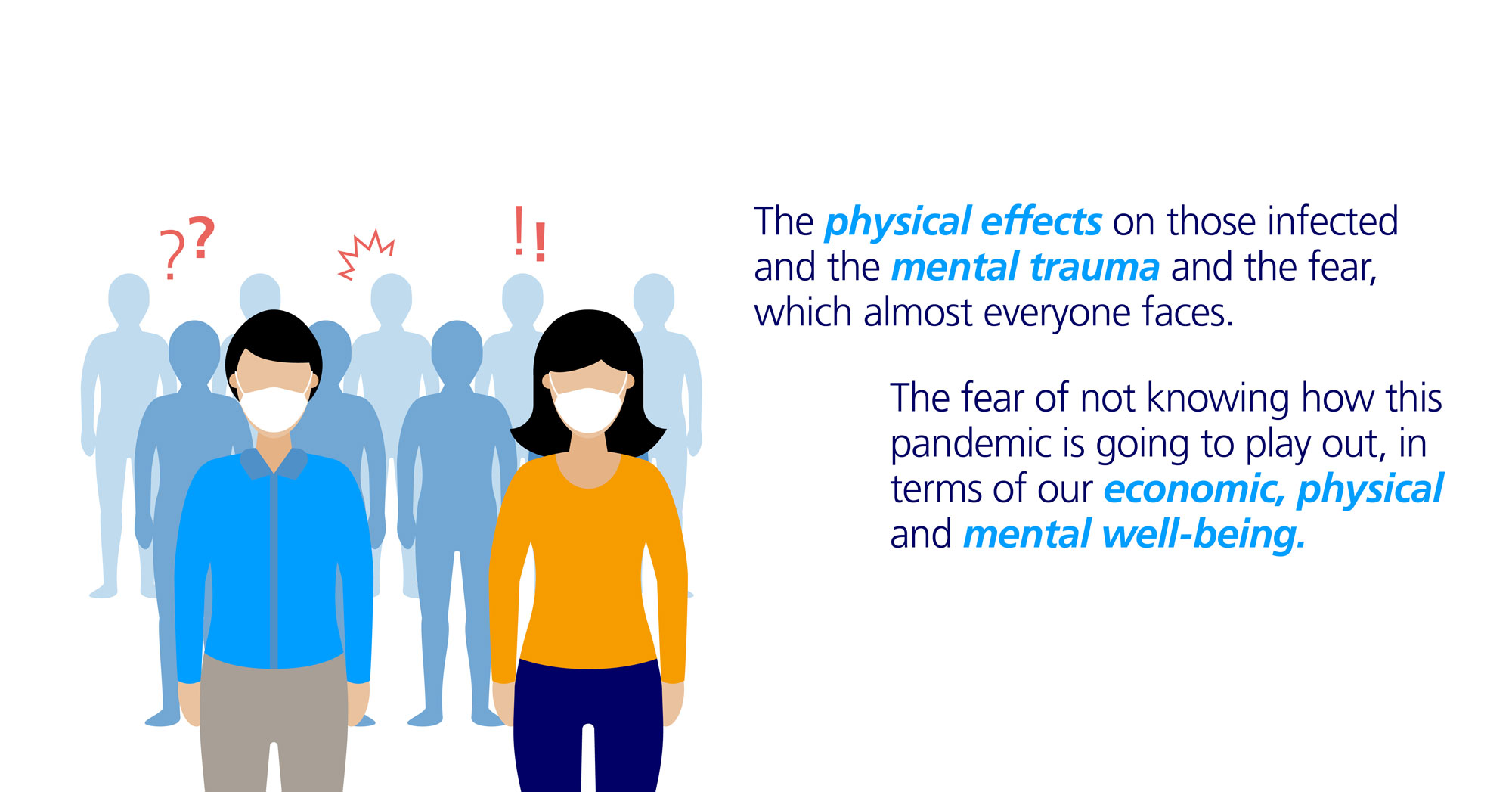
In addition, following the WHO advice, there is a need for the business community to move from general support to specific actions and focus on countries having access to critical supplies, including:
- A “Community Package of Critical Items” (a list of 46 items that all countries need).
- 20 of these items are either not available locally - or available stocks are too limited - and fall into four categories:
- Hygiene: Chlorine, HTH 70%, alcohol based hand rub, liquid soap
- Diagnostics: lab screening tests, lab confirmation tests, enzymes, RNA extraction kits
- PPE: gowns, scrubs, aprons, sterile gloves, protective goggles, face shields, masks (N95 or FFP2)
- Case management equipment: oxygen concentrators, oxygen delivery systems, mechanical ventilators
The call for action is for more money, to work with manufacturers to create capacity and to organize purchasing so that there is guaranteed access, especially for poorer countries with less resilient public health systems. The concept is to create a global security stockpile of supplies and equipment, an effort that needs:
- Emergency financing
- Access to and increases in manufacturing capacity
- Access to national and supplier stockpiles
- Warehouse and distribution capacity
"We are all in this together, as this pandemic will affect our families, in every country. We will leave no-one behind"Jeremy Farrar, Director, Wellcome Trust
From John Scott, Head of Sustainability Risk, Zurich Insurance Group
1 COVID-19 Global Cases by the Center for Systems Science and Engineering (CSSE) at Johns Hopkins https://gisanddata.maps.arcgis.com/apps/opsdashboard/index.html#/bda7594740fd40299423467b48e9ecf6
2 World Health Organization: Coronavirus disease 2019 (COVID-19) Situation Report – 59. Data as reported Data by national authorities by 0:00 CET, 19 March 2020
3 Open letter from World Travel and Tourism Council (WTTC) to Governments, 17th March 2020 https://www.wttc.org/about/media-centre/press-releases/press-releases/2020/open-letter-from-wttc-to-governments/
4 World Economic Forum, Global Risks Report 2019, published January 2019. Heads and Hearts: The Human Side of Global Risks
5 Freedom House. 2018. Freedom in the World 2018: Democracy in Crisis. FreedomHouse. https://freedomhouse.org/report/freedom-world/freedom-world-2018
6 BBC Monitoring and BBC Trending article, 19th March 2020, by Olga Robinson and Marianna Spring “Coronavirus: How Bad Information Goes Viral”
7 Advisen article, published March 19th 2020 “Hackers using COVID-19 Specials, Discounts to Sell Malware on the Dark Web”
8 Financial Times article 12th March by Hannah Roberts “Conversations on a national quarantine bring Romans together”
9 The Standard, Australia article, 13th March, by Jennifer Boddy, Amy Young & Patrick O’Leary “Cabin fever: Australia must prepare for the social and psychological impacts of a coronavirus lockdown
10 Financial Times article 20th March by Lucy Warwick-Ching “Working parents braced for home schooling their children”
11 Edelman Trust Barometer Special Report on COVID-19 Demonstrates Essential Role of the Private Sector https://www.edelman.com/research/edelman-trust-covid-19-demonstrates-essential-role-of-private-sector
